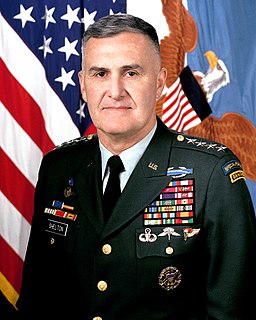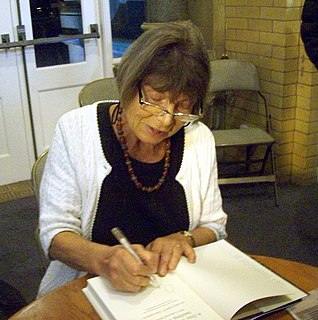A Quote by Christopher Buckley
Catch-22's first readers were largely of the generation that went through World War II. For them, it provided a startlingly fresh take, a much-needed, much-delayed laugh at the terror and madness they endured.
Related Quotes
If someone who wanted to learn to dance were to say: For centuries, one generation after the other has learned the positions, and it is high time that I take advantage of this and promptly begin with the quadrille--people would presumably laugh a little at him, but in the world of spirit this is very plausible. What, then, is education? I believed it is the course the individual goes through in order to catch up with himself, and the person who will not go through this course is not much helped by being born in the most enlightened age.
I think in many ways, the Spanish Civil War was the first battle of World War II. After all, where else in the world at this point did you have Americans in uniform who were being bombed by Nazi planes four years before the U.S. entered World War II? Hitler and Mussolini jumped in on the side of Francisco Franco and his Spanish nationalists, sent them vast amounts of military aid, airplanes, tanks - and Mussolini sent 80,000 ground troops as well - because they wanted a sympathetic ally in power. So I think it really was the opening act of World War II.
It's important to remember that World War II was experienced very much as a continuity in that sense. Most of World War II in most of Europe wasn't a war; it was an occupation. The war was at the beginning and the end, except in Germany and the Soviet Union, and even there really only at the end. So the rest of time it's an occupation, which in some ways was experienced as an extension of the interwar period. World War II was simply an extreme form, in a whole new key, of the disruption of normal life that began in 1914.
It's very important to understand that World War II is at the base of this new policy. From the 1890s on, the U.S. was always imperialistic. We went after the Philippines, and we did the same in Cuba, in Hawaii. We controlled South America. Woodrow Wilson was not what he was supposed to be. He was very much a white man first. "The world must be made safe for democracy." It really accelerates after World War II.
The Second World War had really devastating effects for much of Europe. It really didn't take them very long to reconstruct state capitalist democracies because it was in people's heads. There were other parts of the world that were pretty much devastated and they couldn't do it; they didn't have the conceptions in their mind. A lot of it is human consciousness.
There's no other way to learn about it, except through documentaries. I encourage documentarians to continue telling stories about World War II. I think documentaries are the greatest way to educate an entire generation that doesn't often look back to learn anything about the history that provided a safe haven for so many of us today. Documentaries are the first line of education, and the second line of education is dramatization, such as The Pacific.
However, there is a fundamental difference between the issue related to Japan's history and our negotiations with China. What is it all about? The Japanese issue resulted from World War II and is stipulated in the international instruments on the outcomes of World War II, while our discussions on border issues with our Chinese counterparts have nothing to do with World War II or any other military conflicts. This is the first, or rather, I should say, the second point.
I urge all Connecticut residents to reflect on the sacrifices made by the Greatest Generation during World War II. In the aftermath of tragedy, they came together in the name of justice, humanity, and democracy, and each of us has benefitted from their service. We will be always grateful for everything they have provided to the United States.






































